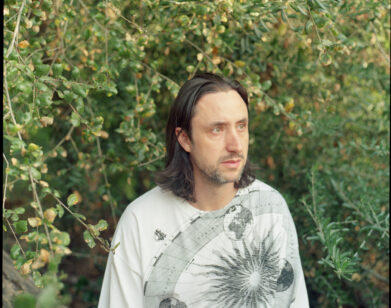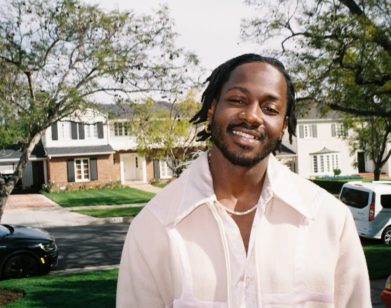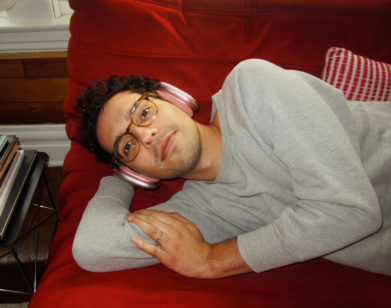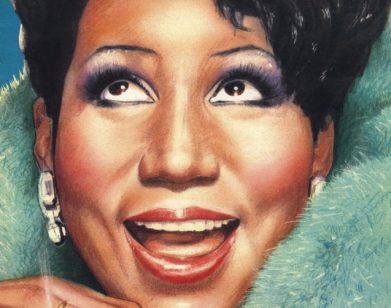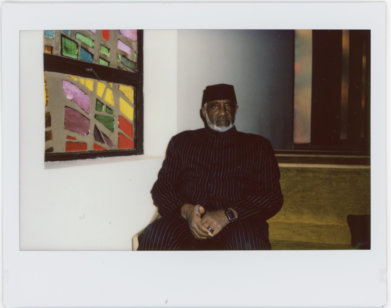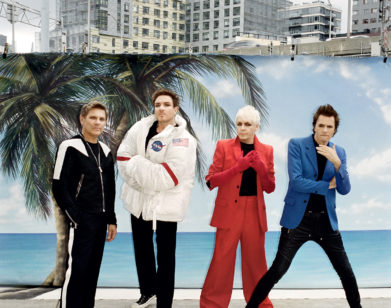q & a
St. Vincent Is the Schmaltzy Radio DJ We Didn’t Know We Needed
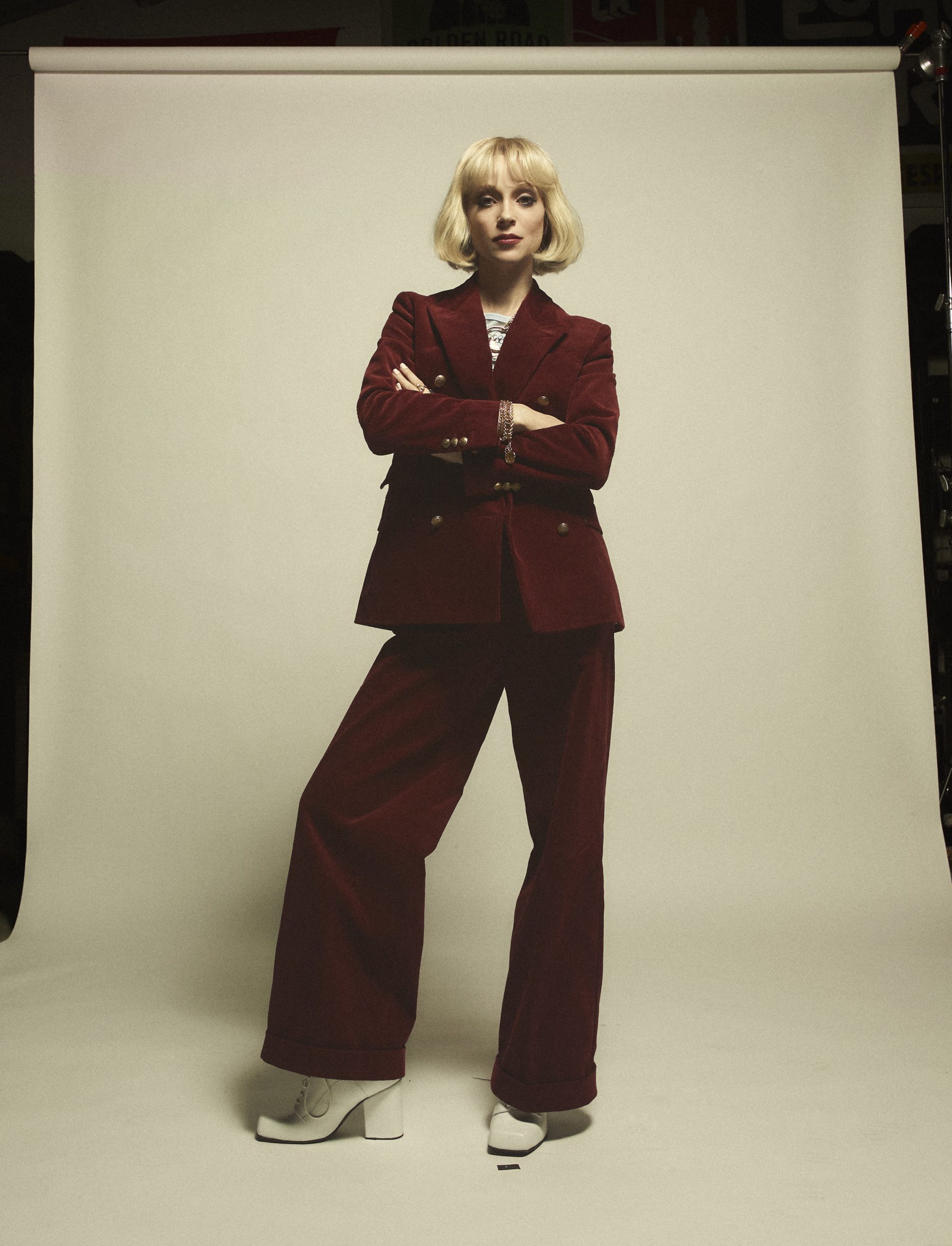
Photo by Zackery Michael.
St. Vincent’s greatest gift may be her consistent ability to reimagine St. Vincent. Time and again, the Dallas native (real name Annie Clark)—whose complex instrumental work reflects influences as wide-ranging as electropop and cabaret jazz— has distinguished herself with oeuvre-defining albums that depart thematically and sonically from their predecessors. While critically-acclaimed albums like 2014’s eponymous St. Vincent and 2017’s Masseducation positioned her in the crosshairs of every blue chip act from Nirvana to Taylor Swift to Dua Lipa, the enigmatic 38-year old artist has managed to resist the mainstream trajectory that would be hers for the taking.

Further evidence of the artist’s unconventional creative interests is found in her recent collaborations with Apple Music Radio, where, in recent years, she has adopted a number of old-school radio host personas. Over two seasons of St. Vincent’s Mixtape Delivery Service, a confessional-style program where the two-time Grammy winner responded to fans’ stories of their struggles and milestones with a perfectly tailored playlist, the artist managed to sidestep her larger-than-life public persona in favor of more intimate personal connections.
Most recently, St. Vincent dove headlong into WSTV Radio, a ‘70s-era program in which she adopts a luscious radio DJ persona complete with sumptuous vocals and no shortage of schmaltzy humor. Through a combination of newsy tidbits, weather reports, and music of the era, St. Vincent crafts a velvety soundscape that reviews the events of a specific day (all thanks to meticulous research) of that seminal decade in music history. The final episode of this season, which aired on Friday, saw Clark spin a mix of 1974’s chart-toppers: Aretha Franklin, Stevie Wonder, Paul McCartney & Wings, and many more (all episodes of this season can be accessed via Apple Music). Below, the artist reflects on the feeling of reaching back in time, the technique behind her ‘70s DJ voice, and the importance of breaking through the artist-audience barrier.
———
VEITCH: What are the essential ingredients of this smooth ‘70s persona that you crafted for the radio show?
ST. VINCENT: Well, a radio voice is essential— there’s an art to throwing it up and down. In those days, the goal was just to keep people constantly engaged. That voice needs to poke you in the ribs with its elbow, lay on the sexual innuendo, and soothe you, all in a span of a few seconds. Mastering that voice—where you’re both an authority and one of the people— is a lot of fun.
VEITCH: What is it about that kind of era-specific schmaltz that appeals to you?
ST. VINCENT: There’s a certain comfort in schmaltziness. On one hand it’s self-aware, but on the other hand it’s very sincere. It’s that little wink that says, “I know I’m too much, but I also know you love it.”
VEITCH: What does the radio format give you that contemporary forms of music curation do not?
ST. VINCENT: It used to be that a DJ was the filter between this wide swath of music and your ears. It came down to one person’s taste. Very analog. Now, we have algorithms. I’ve discovered cool stuff from algorithms, but it’s a very different, very impersonal thing.
VEITCH: When you began this project, what sources did you turn to?
ST. VINCENT: Well, I think about structure a lot with everything that I make. A project needs shape—it doesn’t matter what it is—you just need to decide what the rules are, and then go with it. In this case, the parameters are that I’m focusing on specific days between 1971 and 1976. A lot of the Daddy’s Home [her 2021 album] stuff was taken from that period. I’d start every episode by saying to myself, “Okay great, it’s this day in this year. What was going on? What music was playing?”
VEITCH: There’s something unsettling about creating this time warp that brings the details of a specific day from 50 years ago into the present. What effect do you think this project has on listeners?
ST. VINCENT: In a broader sense, there are things that we have been wrestling with, concerned about, and obsessed with since time began. You can dress them up in disco clothes, but people are still dealing with the same kinds of emotions, and life problems as they always have. Then there’s this sharp contrast between those stories and moments that make us say, “Wow, culture has really changed in a lot of ways.” That tradeoff is interesting to me.
VEITCH: What do you think is the value of making art or music through the lens of an alter ego or a persona? It feels like a dying practice today.
ST. VINCENT: To use a sports metaphor, it used to be that artists and performers were the football players, and the rest of us were watching from the stands. Now, all of us are on the field. We’ve heard this a thousand times, but social media has made it so that everybody is performing a version of themselves. To your point, right now the focus in our industry is on performing authenticity, not otherworldliness. That authenticity is in the form of, “Oh, we all have struggles with mental health, or self esteem. I struggle with these things too.” I’m not saying that big performers don’t have trouble with these things— of course they do— but there is a currency in performing “relatability” today.
VEITCH: Tell me about your last Apple Radio show, St. Vincent’s Mixtape Delivery Service. How, in light of what you’ve just said, do you think this deviates from the typical artist-audience dynamic? What itch did that project scratch for you?
ST. VINCENT: Well, and this may fly in the face of everything I just said, but what I try to do with music is blow away those boundaries so that I can meet people in a place that is genuine and devoid of all of the silly trappings that we just talked about. Also, believe it or not, I don’t really like talking about myself. Mixtape Delivery Service gave me a way to talk to people about what’s going on in their lives. Some of the calls I got were about sweet rites of passage, and others were really devastating. Those interactions allowed me to kind of take the temperature of America, in a way.
VEITCH: What do you see these projects evolving towards? Is there some sort of dream hybrid of your music and these more curatorial works that you’re envisioning?
ST. VINCENT: I don’t know. It’s funny, my honest self-assessment is that I am not a natural performer. I’ve figured out a way to do it, and I’ve gotten better at it. Now I have a deep love for it, but I’m not really a “hey, look at me,” kind of person. What I’d like is to find a way to experience real freedom in performance. Acting sounds fun, and doesn’t seem like that much of a stretch. I just want to communicate the human experience in as many kinds of ways as I can.

